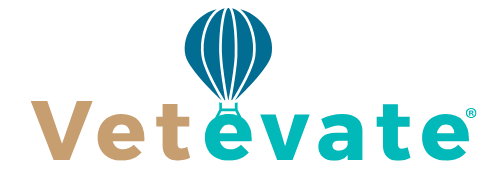Veterinary job boards are specialized platforms designed to connect professionals who want to work with animals with employers in the animal health industry. These sites offer more than just job listings—they serve as hubs for career advice, networking opportunities, and industry insights. Whether you’re a new veterinary graduate, a licensed veterinary technician, a zoo animal caretaker, or someone looking to transition into a career that involves animals, a veterinary job board can be an essential resource.
To begin, it’s important to understand how these boards are structured. Most allow users to search by job title, location, employment type, and sometimes even by species or practice type. This means you can narrow your focus to positions that truly interest you, whether it’s small animal practice, equine care, exotic species, shelter medicine, or wildlife rehabilitation. These boards are often updated daily and reflect real-time hiring needs, giving you the most current look at what opportunities are available.
One of the key advantages of using a veterinary-specific job board over general platforms like Indeed or LinkedIn is the precision of the listings. Employers who post on these niche sites are targeting candidates who already understand the unique demands and language of animal-related work. This focus helps eliminate irrelevant results and streamlines the job search process. By relying on these curated listings, you’re more likely to find opportunities that align with your skills and passions.
Creating a Strong Profile and Resume
To make the most of a veterinary job board, you need to start by creating a complete and compelling candidate profile. This profile acts as your digital handshake—it’s often the first impression you’ll make on a prospective employer. Make sure to include up-to-date contact information, a concise professional summary, and a list of licenses, certifications, and relevant experiences. If the board allows, include links to portfolios or personal websites that showcase your work or volunteer history with animals.
Your resume should be tailored specifically to the type of position you’re seeking. For example, if you’re applying to work in a shelter or rescue, emphasize your ability to work with stressed or traumatized animals. If you’re targeting a research role, highlight your lab experience and familiarity with clinical protocols. Even within the veterinary field, roles can differ dramatically, so it’s vital that your resume speaks directly to the job at hand. When applying through job boards, it’s common for employers to use applicant tracking systems (ATS), so be sure to include keywords from the job description to improve your chances of passing initial screening.
Another critical element is your cover letter. Many job seekers underestimate the power of a well-written cover letter, but in a field where empathy, communication, and personal motivation are highly valued, your letter can set you apart. Use it to explain why you’re drawn to this specific role and how your values align with the mission of the practice or organization. Job boards often allow you to attach this document directly, and in competitive markets, it can be the difference between landing an interview or being overlooked.
Navigating the Application Process Strategically
Once your profile and documents are in order, it’s time to dive into the application process. Resist the urge to apply indiscriminately. Instead, take a strategic approach by thoroughly reading each listing and understanding what the employer is seeking. Some roles may emphasize technical skill, such as proficiency with ultrasound or surgical prep, while others may focus on client communication, multitasking, or team collaboration. Target your application materials to emphasize the aspects of your background that are most relevant to the job.
Be mindful of application instructions. Veterinary employers often include specific requests in their listings—such as desired file formats, writing samples, or a particular subject line for email submissions. Attention to detail here is crucial. Failing to follow directions, even on something as small as naming a file correctly, can result in your application being discarded before it’s ever reviewed.
If the job board includes a messaging feature, use it to your advantage by introducing yourself to recruiters or hiring managers, expressing interest, and asking any questions that show your engagement and seriousness. Many veterinary professionals find their jobs through relationship-building and referrals, and the job board environment can serve as a launching pad for those interactions. Don’t hesitate to reach out, but do so with professionalism and respect for their time.
It’s also wise to track your applications. Create a spreadsheet or document that lists the roles you’ve applied for, the date of submission, any follow-up dates, and notes about the organization. This will help you stay organized and avoid duplicate applications. It also sets you up for timely follow-ups, which can demonstrate initiative and keep your candidacy top of mind for hiring teams.
Making the Most of Job Board Features
Many veterinary job boards include additional features designed to help candidates stand out. These can include job alerts, resume databases, salary insights, employer reviews, and even continuing education listings. Set up job alerts for your preferred roles and locations so you don’t miss any openings that match your criteria. This can be especially useful in competitive markets or for high-demand positions like wildlife veterinarians or zoo technicians, where jobs may fill quickly.
Consider uploading your resume to the board’s candidate database if it offers one. Many employers search these databases proactively, meaning you could be contacted about a job you never even applied to. Make sure your resume is searchable and uses industry-relevant keywords so it surfaces in these recruiter searches. If you’re open to relocation, indicate that in your profile. Geographic flexibility is a big asset in veterinary medicine, particularly for roles in rural areas, conservation work, or academic institutions.
Job boards also sometimes host virtual career fairs or webinars. Attending these events can expand your network and expose you to companies or roles you hadn’t considered before. Even if you’re not actively job hunting, staying connected to these features helps you monitor trends in the industry, such as shifts in compensation, rising demand for certain specialties, or emerging job titles like telemedicine veterinarians or veterinary practice consultants.
Finally, take time to read the blog or resource section of the job board if one exists. Many offer practical advice on interview preparation, workplace culture, career transitions, and mental health in the veterinary profession. These insights can enhance not only your job search strategy but also your long-term professional development and satisfaction in the field.
Veterinary Job Boards: The Final Word
Finding a job that involves animals requires more than just passion—it takes planning, persistence, and the right tools. Veterinary job boards are one of the most efficient and targeted ways to connect with employers who share your dedication to animal health and welfare.
By creating a detailed profile, tailoring your application materials, applying strategically, and using the board’s additional features, you position yourself as a serious and capable candidate. Whether you’re just beginning your career or looking for your next meaningful role, a veterinary job board can help you take that next step toward a future where you make a real impact in the lives of animals and the people who care for them.




